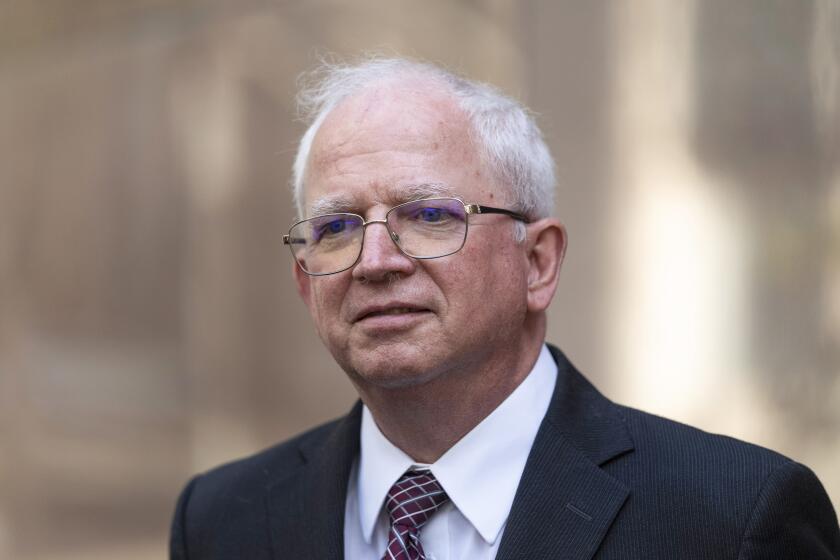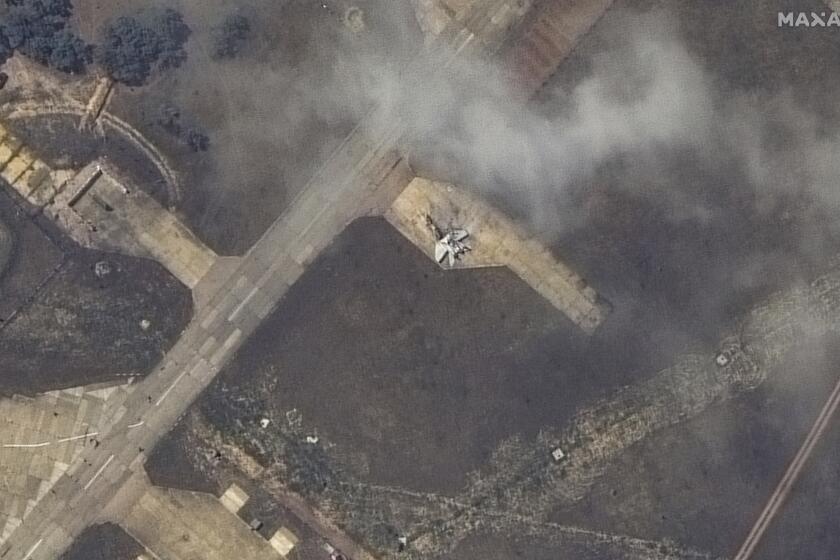For Peres and Hassan, Meeting Was the Message
When Moshe Dayan traveled to Morocco in September, 1977, to hear Egyptian preconditions for entering into peace negotiations with Israel, the car driving him from a Cabinet meeting in Jerusalem to the military airfield near Tel Aviv stopped near the village of Abu Gosh. There Dayan transfered into a van, where he was disguised with a thick wig, a bushy mustache and a pair of sunglasses.
Prime Minister Shimon Peres had to wear neither wig nor sunglasses when he left for Ifrane on Monday. While Morocco was a conduit to the Egyptians for Dayan, King Hassan’s agreement to meet openly with Peres was a goal in itself for the prime minister. It was not only King Hassan, ruler of Morocco, a country in which Israel has but peripheral interest, that Peres had come to meet, but King Hassan, chairman of the Arab League and holder of the highest titles of Islam.
Though a joint communique issued by both sides after the meetings stresses the differences of perceptions between the two countries regarding future process in the Middle East, there was no realistic expectation on either side that after two days and three meetings, Israel and Morocco could begin to bridge the impossible gap in their views on how to solve the Middle East imbroglio.
The goal of the meeting--the first ever between an Israeli prime minister and the head of an Arab state not at peace with Israel--was for the two leaders, each from his own perspective, to express and demonstrate their mutually held belief that the time has come for a new age of rationality in the Middle East.
“There were two primary goals,” an aid to Peres said. “The first, to nurture the seeds of peace planted by the late President Anwar Sadat (of Egypt) and not allow the obduracy of the radicals, who for too long have been the only voices heard in the region, to continue to dictate the tone of Middle East Realpolitik. The second, to force a reaction in the Arab world that would encourage the moderates and isolate the rejectionists.”
And indeed, though the television shot of Hassan and Peres sitting uncomfortably side-by-side was but a few seconds long, it was long enough and meaningful enough for the Syrians to break off diplomatic relations with Morocco, make Egypt’s usually dour President Hosni Mubarak smile publicly for one of the few times in recorded history and drive a deeper wedge between the tacitly silent Arab moderates--Jordan, Saudi Arabia and the Persian Gulf states who have neither blessed nor condemned the meeting--and the predictably shrill rejectionists, Syria, Iran, Libya, Iraq and the Palestine Liberation Organization.
To be sure, Hassan and Peres had some less-altruistic reasons for the meeting as well. Peres has less than three months left to him as prime minister. He had absolutely nothing to lose and everything to gain from going to Ifrane. He gave away nothing and gained much, both in terms of personal stature and the reaction, pro and con, in the Arab world. Hassan, for his part, came off the sidelines to reassert himself at the forefront of Arab moderation--conveniently on the eve of a crucial visit to a now-ecstatic Washington.
But this does not belie the intended message of the summit--that fundamental changes that have taken place in the Middle East since Dayan changed clothes at Abu Gosh, a changed Middle East where “Arab” and “Jew” have ceased to be axiomatically associated as enemies, where Jordan openly uses Israeli-made irrigation systems, where the Egyptian air force flies American Phantom jets with more than 200 Israeli modifications on them and the Saudi air force F-15s have Israeli-manufactured components.
It is a Middle East that in the past eight years has witnessed peace between Israel and Egypt, the ouster of the shah, the Iran-Iraq War, the raid on the Iraqi reactor, the assassination of Sadat, war in Lebanon, the dispersal and split of the PLO, change of government in Israel, an Israeli strike on Tunisia, a U.S. raid on Libya, the drop in the price of oil, a radical departure in Jordanian and Egyptian attitudes toward the Palestinian issue and growing problems in Syria.
The Peres-Hassan summit can now be added to the list of landmarks, with only history able to judge whether this was indeed a point of departure or yet another dramatic journey to an ultimate dead end.
If one is to listen to Hassan’s version of the meeting, in his address to his people in a special broadcast Wednesday night, one is led to believe that after Peres flatly rejected the basic assumptions of the 1984 Fez peace plan, the Arab world’s plan for peace in the Middle East, there was nothing left to speak about. The king’s statement, senior Israeli government sources say, should be received here with “understanding,” intended not as an assessment of the summit, but as a reassurance to his Arab brothers troubled by the implications of the dramatic summit that he had not departed from Arab consensus.
Clearly, they point out, Hassan, an astute politician, could not have realistically expected Peres to have committed Israel to any of the basic presumptions of the Fez plan--direct negotiations with the PLO, a pre-commitment to return all of the territories captured by Israel in 1967, the creation of an independent Palestinian state and the renegotiation of the status of Jerusalem--without Cabinet consultation, without party approval, without the presence of a legal adviser or bipartisan government official, without a national mandate. Had he done so, Peres would have probably had to return to Israel wearing a wig, mustache and sunglasses.
Peres, addressing himself to the question of war and peace in this region at a symposium in Jerusalem two weeks ago--just eight days before he was due to leave for Morocco--outlined his intentions for the still-secret summit without telling his audience specifically what he was speaking about. He stressed that he does not have grandiose notions about how peace can be attained. He did not base his assumption of a better future on one dramatic gesture.
Instead, he said, he saw the future built on a gradual process, consolidating the positive elements at play in the arena, and a deepened dialogue between the moderate sides to the argument if there is not to be another war before there is peace.
Peres, in fact, was telling his Jerusalem audience of his intention to break the ice, to expect movement, but not to misinterpret this movement as a headlong plunge into major, fundamental or significant change. He hinted at the possibility of future Israeli-Arab interaction, but rather as part of a long process, not an end in itself. Who knows what seeds were laid at Ifrane, or whether there will be a continuation of what was started?
There is little incentive for either Peres or Hassan to pursue the experiment if the process remains bilateral. What was achieved, though, was the addition of yet another layer of credibility to the inviolability of Israel’s existence; that in itself underlines the importance of this event.
More to Read
Start your day right
Sign up for Essential California for news, features and recommendations from the L.A. Times and beyond in your inbox six days a week.
You may occasionally receive promotional content from the Los Angeles Times.






